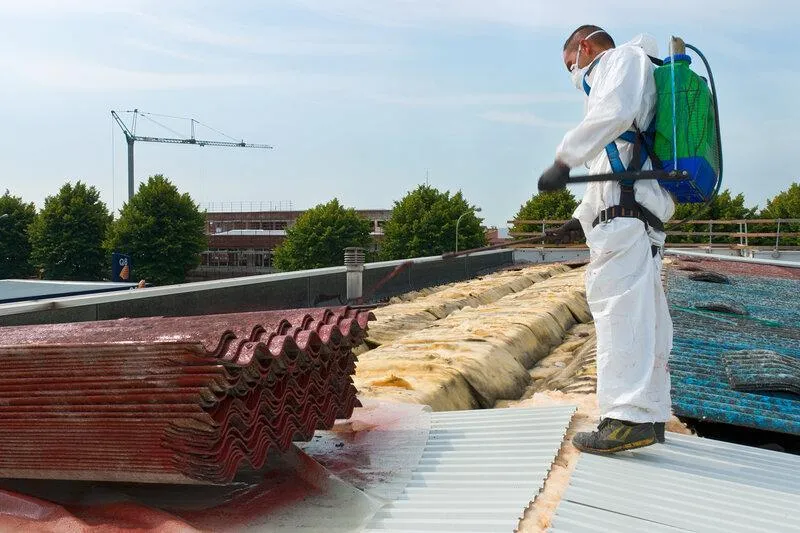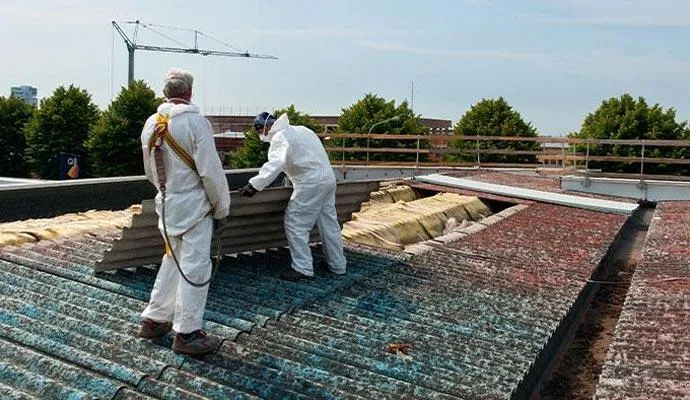
Affordable Asbestos Testing Services in Denver, CO and Surrounding Areas
Keeping your property safe from asbestos hazards is essential for both health and compliance. In Denver, CO, and nearby communities such as Thornton, Broomfield, Commerce City, Boulder, Arvada, Longmont, Aurora, Lakewood, and Westminster, certified asbestos inspectors provide affordable testing solutions that protect homeowners, contractors, and businesses. From identifying asbestos-containing materials to delivering accurate laboratory results, these services ensure safe renovations, property transactions, and long-term peace of mind.
What Are Affordable Asbestos Testing Services and Why Are They Essential?
Affordable asbestos testing services bring in certified inspectors who carefully examine suspect materials, collect samples, and provide lab-confirmed results. This process is essential before starting renovations, demolitions, or property sales because it prevents costly project delays and protects occupants from harmful asbestos fibers. Many properties built before 1985 are likely to contain asbestos, and professional testing ensures any risks are identified before work begins.
What Does Professional Asbestos Testing Include?
A professional asbestos inspection begins with a thorough walkthrough of the property to identify possible asbestos-containing materials. Inspectors then collect small samples in a safe and controlled manner, following Colorado’s strict safety protocols. These samples are analyzed in accredited laboratories using Polarized Light Microscopy (PLM) or Transmission Electron Microscopy (TEM), depending on the project’s needs. Once testing is complete, a detailed written report is provided. This report outlines the findings, shows asbestos concentrations, explains the level of risk, and includes notes on compliance with local and federal regulations.
How Do Certified Inspectors Ensure Accurate Results?
Certified asbestos inspectors in Denver and nearby towns undergo rigorous training and hold Colorado Department of Public Health and Environment (CDPHE) certification. They follow EPA and OSHA-approved methods for sampling and analysis, use calibrated equipment, and maintain strict quality-control procedures. To guarantee defensible results, inspectors also work with accredited laboratories that verify each sample through advanced testing techniques. This combination of training, compliance, and laboratory partnerships ensures accuracy and reliability in every asbestos inspection.
Who Needs Asbestos Testing in the Denver Metro Area?
Asbestos testing is necessary for a wide range of property stakeholders. Homeowners planning renovations in older properties should test before starting work to avoid disturbing hidden asbestos materials. Contractors preparing for remodeling or demolition rely on testing to create accurate project bids and avoid unexpected hazards. Property managers often require testing when preparing units for tenant turnover or conducting major maintenance. Commercial building owners also need testing when selling, refinancing, or completing upgrades to ensure compliance with state regulations.
How Does the Asbestos Testing Process Work?
The process begins with an initial consultation and site assessment, during which inspectors review the age of the property, the scope of work, and potential asbestos-containing materials. Based on this assessment, a sampling plan is created. During sample collection, materials are carefully handled, sealed, and documented to prevent contamination. The samples are then sent to accredited laboratories for analysis using PLM or TEM methods. Finally, the results are compiled into a comprehensive report that details the presence and concentration of asbestos, along with guidance on the next steps.
What Information Is in the Asbestos Testing Report?
An asbestos testing report includes descriptions and photographs of the materials sampled, along with laboratory results that specify the type and percentage of asbestos found. It also identifies whether the materials are friable, meaning they can easily crumble and release fibers, or non-friable, which are more stable but still hazardous if disturbed. Compliance notes referencing Colorado’s CDPHE Regulation No. 8 are included, as well as recommendations for safe management or removal. This report provides property owners with a clear plan for handling asbestos responsibly.
How Should You Act on Testing Results?
When the report indicates that asbestos was not detected, the property is generally safe to proceed with renovation or demolition work. If positive findings are present, certified abatement or encapsulation is usually required. In cases where friable asbestos is found, immediate professional handling is necessary because these materials release fibers easily and pose a significant health risk. Following the inspector’s recommendations ensures compliance with Colorado laws while protecting occupants and workers from exposure.
What Factors Influence Asbestos Testing Costs in Denver?
The cost of asbestos testing depends on several factors, including the number of samples collected, the type of analysis used, and the turnaround time required. For example, PLM testing is generally more affordable and provides results within a standard timeframe, while TEM testing is more detailed and often used for expedited or high-risk projects. Although pricing can vary, affordable options are available that balance thorough testing with budget considerations. Transparent pricing allows homeowners and contractors to plan with confidence, avoiding hidden fees and surprise costs.
Why Is Certified Asbestos Testing Worth the Investment?
Investing in certified asbestos testing provides long-term value by protecting health, ensuring compliance with Colorado and federal regulations, and reducing legal or financial risks. Proper testing also increases property safety, value, and marketability, as documented results reassure buyers, tenants, and regulators that asbestos has been properly managed. Ultimately, the relatively small upfront cost of testing helps prevent far more expensive issues that can arise from asbestos exposure or non-compliance.
How Do Colorado Regulations Affect Asbestos Testing?
Colorado’s CDPHE Regulation No. 8 requires asbestos surveys for all renovation and demolition projects involving buildings constructed before 1985. These regulations state that only accredited inspectors can collect and analyze asbestos samples, and property owners must keep records of inspections and abatement activities for at least three years. For residential properties, testing is required whenever asbestos-containing materials are suspected, while commercial and industrial projects must always include testing and notification to CDPHE. Following these regulations prevents fines, delays, and health risks.
Final Thoughts
Affordable asbestos testing in Denver and surrounding areas is more than just a regulatory requirement—it’s an investment in long-term safety, compliance, and peace of mind. By hiring certified inspectors, property owners gain accurate results, defensible documentation, and clear guidance on how to manage or remove asbestos. Whether you’re renovating, selling, or maintaining an older property, professional testing helps prevent health risks, legal issues, and costly project delays. Partnering with local experts ensures your property remains safe, compliant, and ready for the future.

What is asbestos and why is it dangerous?
Asbestos is a naturally occurring mineral used in building materials for insulation, fireproofing, and flooring. It becomes hazardous when fibers are released into the air and inhaled, potentially causing lung disease, mesothelioma, and other serious health issues.
How do I know if my home or building has asbestos?
Properties built before 1985 may contain asbestos in ceilings, floor tiles, insulation, drywall, and siding. Only certified asbestos testing and laboratory analysis can confirm its presence.
Can I do asbestos testing myself?
DIY asbestos testing is not recommended because it can release fibers into the air and is often illegal. Certified inspectors use safe sampling methods and accredited labs to provide accurate, legally defensible results.
How long does asbestos testing take?
The onsite inspection usually takes 1–2 hours, depending on property size. Laboratory analysis typically takes 3–5 business days, though expedited services are available for faster results.
What should I do if asbestos is found in my property?
Consult a certified abatement contractor to safely remove or encapsulate the materials. Your testing company may also offer project management to oversee remediation and clearance testing.
Address: 13340 Harrison Street, Thornton, CO 80241
Phone: 720-571-8481
Email: [email protected]
